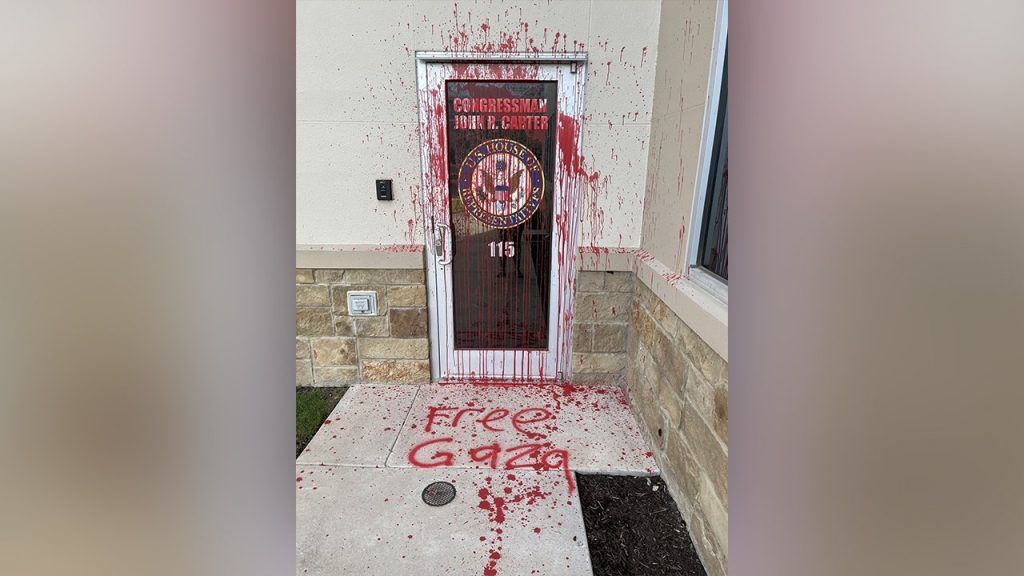Rep. John Carter, R-Texas, recently became the target of vandalism at his Georgetown office by what he described as “unhinged anti-Israel activists.” The incident occurred shortly after Carter voted in favor of providing $26 billion in aid to Israel. Photos of the vandalized office were posted on social media, showing red liquid splattered on the door with the words “Free Gaza.” Carter responded by reaffirming his unwavering support for Israel and vowing to prosecute those responsible to the fullest extent of the law.
The Georgetown Police Department responded to the incident and is investigating it as criminal mischief, a misdemeanor in Texas if the loss is between $750 and $2,500. The estimated cost to clean up the damage was around $2,000, according to a representative from Carter’s office. Despite the incident, Carter remained resolute in his support for Israel and unwavering in the face of intimidation, emphasizing that those responsible for the vandalism would be held accountable for their actions.
Carter’s vote in favor of the Israel Security Supplemental Appropriations Act, which proposed providing $26.38 billion in aid to Israel, sparked controversy and protest among anti-Israel groups across the country. The bill was passed by Carter and 365 other members of the House of Representatives, sending it to the Senate for further approval. The bill includes several provisions aimed at supporting Israel amidst ongoing tensions and conflicts in the region.
The incident at Carter’s office is just one example of the growing anti-Israel sentiment in the United States, with protests taking place at various cities and universities, including Columbia University in New York City. Despite warnings from the Jewish community about safety concerns, anti-Israel agitators continue to push their agenda through demonstrations and other means. As tensions in the region escalate, lawmakers like Carter face mounting pressure to take a stand on the issue and show their support for Israel.
In response to the vandalism at his office, Carter remained defiant and resolute in his support for Israel, calling out the actions of the perpetrators as unacceptable and criminal. He emphasized that intimidation tactics would not deter him from standing by his beliefs and advocating for Israel. As the investigation into the incident continues, Carter’s commitment to upholding his values and principles remains unwavering, despite facing backlash from anti-Israel groups and individuals.
As the debate over U.S. aid to Israel continues to divide lawmakers and communities, incidents like the vandalism at Carter’s office highlight the passionate and sometimes controversial nature of the issue. With tensions running high and emotions flaring on both sides of the debate, finding common ground and fostering constructive dialogue remains a challenge. Carter’s experience serves as a microcosm of the broader conflict, shedding light on the complexities and challenges of navigating the Israeli-Palestinian conflict in a polarized political climate.


